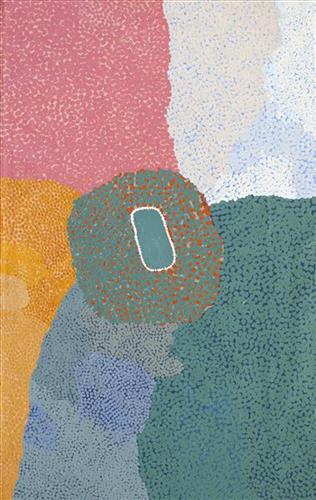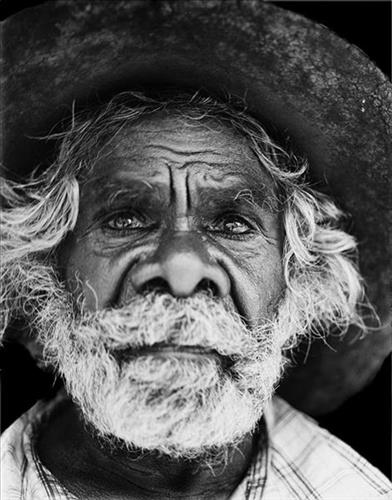111581962472
Matakurlu
Plenty tali (sandhills) here, other side of Punmu. My Country, I been there pujiman (traditional, desert dwelling) time.
– Wokka Taylor
Matakurlu is a soak located between Punmu Aboriginal community and the Percival Lakes region of Western Australia’s Great Sandy Desert. This site lies within Wokka’s ngurra (home Country, camp), the area which he knew intimately and travelled extensively with his family in his youth. As well as forming part of Wokka’s ngurra, Matakurlu features as a site in both the Minyipuru (Jakulyukulyu, Seven Sisters) and Wati Kujarra (Two Goanna Men) Jukurrpa (Dreaming) narratives.
Minyipuru is a central Jukurrpa narrative for Martu, Ngaanyatjarra, Pitjantjatjara and Yankunytjatjara people that is associated with the seasonal Pleiades star constellation. Beginning in Roebourne on the west coast of Western Australia, the story morphs in its movement eastward across the land, following a group of women as they walk, dance, and even fly from waterhole to waterhole. As they travel the women camp, sing, wash, dance and gather food, leaving markers in the landscape and creating landforms that remain to this day, such as groupings of rocks and trees, grinding stones and seeds. During the entirety of their journey the women are pursued by a lustful old man, Yurla, although interactions with other animals, groups of men, and spirit beings are also chronicled in the narrative.
Wati Kujarra is an equally important Martu Jukurrpa narrative. The Wati Kujarra existed as half men, half goanna. They were responsible for the creation of many land features in Martu Country and beyond as they travelled, hunted and burned Country together. Wati Kujarra is a ngurlu (sacred, taboo) men’s story, and for this reason much of the content is only shared with initiated men.




